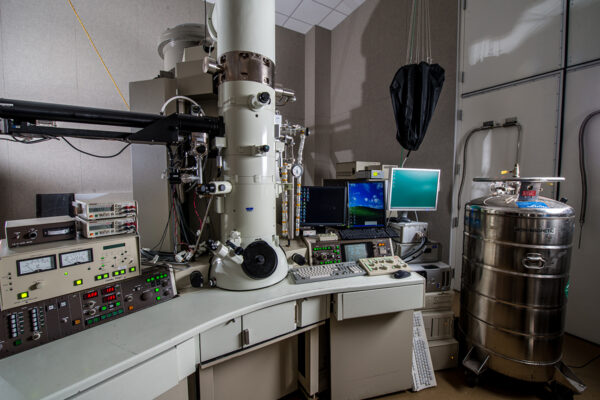Walter named deputy chief information officer
Amy Walter, a leader in information technology at Washington University for the past eight years, has been named associate vice chancellor and deputy chief information officer for research, clinical and medical education technologies across the university. She began in her new role Feb. 1.
Foston, Zhang to use mussel feet as inspiration for underwater adhesives
Marcus Foston, an associate professor at the McKelvey School of Engineering, is one of 20 awardees selected by the Environmental Molecular Sciences Laboratory, a U.S. Department of Energy facility, for this year’s exploratory call.
Cooper receives two NIH grants to study rare genetic disease
Jonathan D. Cooper, a professor at the School of Medicine, received two grants totaling nearly $2.6 million over five years from the National Institutes of Health (NIH) to study gene therapy as a possible treatment for CLN1, a rare genetic disease that is fatal in children.
Chang-Panesso recognized by clinical investigation group
Monica Chang-Panesso, MD, an assistant professor of medicine in nephrology in the Department of Medicine at the School of Medicine, has received the 2023 Research Scholar Award from the Southern Society for Clinical Investigation.
Swamidass named AAAS fellow
S. Joshua Swamidass, MD, PhD, an associate professor of pathology and immunology at Washington University School of Medicine in St. Louis, has been named a fellow of the American Association for the Advancement of Science. He is recognized for applying machine learning to chemical biology and medicine, and for extraordinary public outreach promoting an understanding of science among communities of faith.
Jerome R. Cox Jr., prolific inventor and computer science professor, 97
Jerome R. Cox Jr., a senior professor emeritus in computer science and engineering at the McKelvey School of Engineering, died Jan. 17, 2023, in St. Louis. He was 97.
Nominate students for Switzer award
The Women’s Society of Washington University seeks nominations for the Harriet K. Switzer Leadership Award. The nomination deadline is Feb. 10.
Bolton named Titan 100 honoree
Shantay Bolton, executive vice chancellor and chief administrative officer, was selected for the 2023 St. Louis Titan 100 cohort.
Burton named vice chancellor for government relations
J.D. Burton has been named the vice chancellor for government relations at Washington University in St. Louis, according to Chancellor Andrew D. Martin. He will begin the role March 27.
Gordon receives Dr. Paul Janssen Award for Biomedical Research
Jeffrey I. Gordon, MD, at the School of Medicine, has been named this year’s recipient of the Dr. Paul Janssen Award for Biomedical Research.
View More Stories









